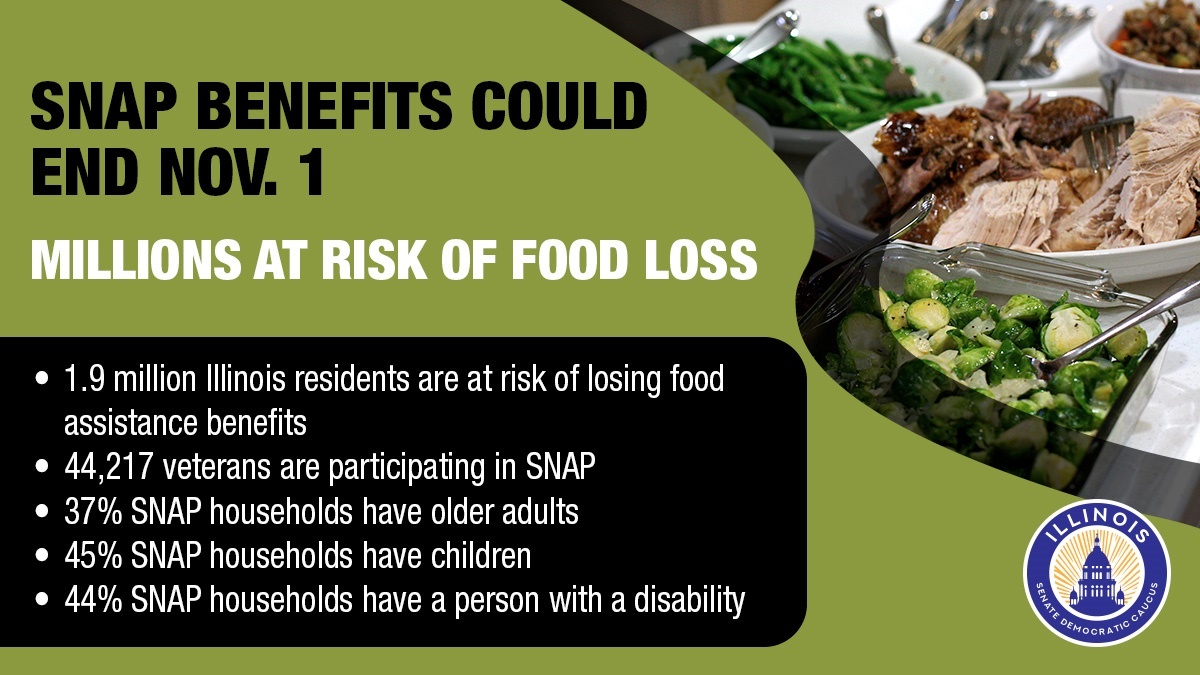 CHICAGO — State Senator Robert Peters is calling on the federal administration to resolve the ongoing government shutdown to prevent the cessation of Supplemental Nutrition Assistance Program, or SNAP, benefits, come Nov. 1. Nearly two million Illinois residents rely on SNAP to provide basic nutrition for themselves and their families.
CHICAGO — State Senator Robert Peters is calling on the federal administration to resolve the ongoing government shutdown to prevent the cessation of Supplemental Nutrition Assistance Program, or SNAP, benefits, come Nov. 1. Nearly two million Illinois residents rely on SNAP to provide basic nutrition for themselves and their families.
“The U.S. Department of Agriculture announced that, with the federal government remaining shutdown, no SNAP benefits will be issued on Nov. 1,” said Peters (D-Chicago). “This is devastating news not just for my constituents – including over 17,000 children and 9,000 seniors – but for every single one of the 42 million Americans who rely on these benefits for access to nutritional food.”
SNAP provides critical support for children, seniors, veterans and individuals with disabilities, offering the nutrition they need to live healthy, productive lives. The federal government shutdown – exacerbated by the administration’s unwillingness to compromise on critical funding needed for various programs – threatens to halt these benefits immediately, putting millions at risk of food insecurity, including the 50,329 people in the district Peters represents who rely on SNAP benefits.
With the Greater Chicago Food Depository’s 2025 Hunger Report showing 36% of households cannot afford the basic cost of living and 25% of people are facing food insecurity, Peters stresses that a long-term solution requires immediate action from the federal administration.
“Our residents do not deserve to be punished or neglected – especially not because of President Trump’s political games,” said Peters. “Many will have no other option for food assistance beginning this weekend if the federal administration doesn’t do their part to protect our nation’s residents. I urge federal lawmakers to come together and take the necessary action to preserve our residents’ access to healthy, affordable food.”
Peters is coordinating with state officials and community organizations to prepare for potential disruptions and to ensure vulnerable populations have access to emergency food assistance.




